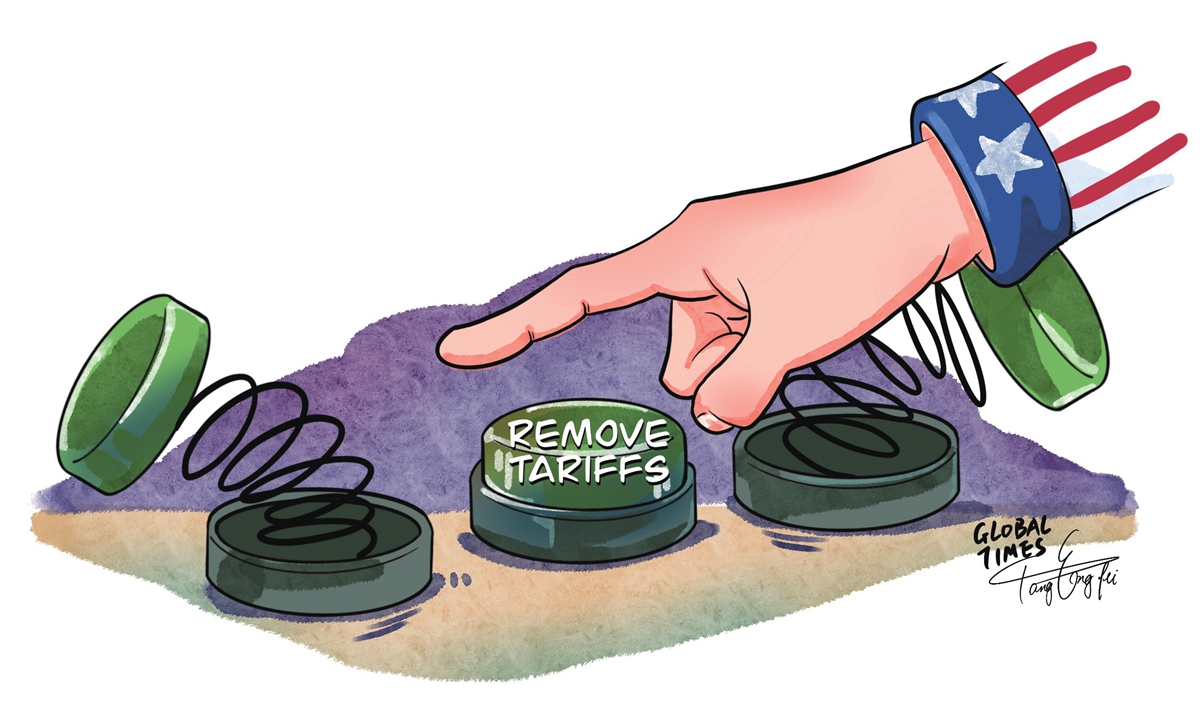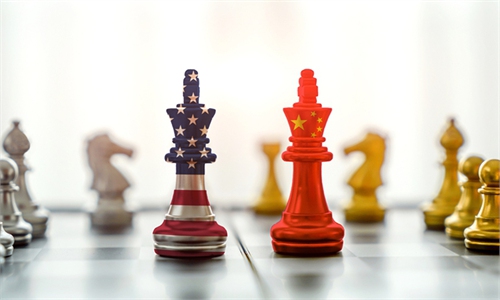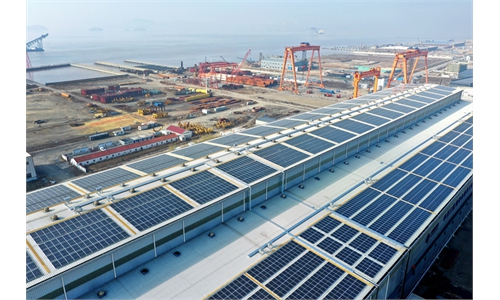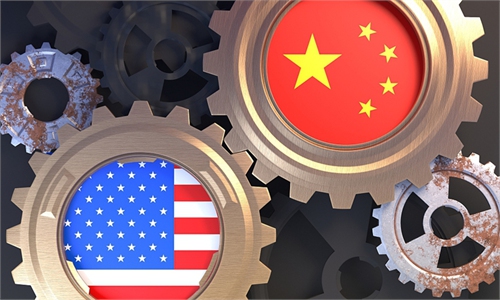
Illustration: Tang Tengfei/GT
After the US ended its 20-year war in Afghanistan in an embarrassment of epic proportions last August, many Monday morning quarterbacks in Washington excoriated the flaws in the US campaign from start to end and seemed adamant about avoiding endless wars. However, less than six months after its haphazard escape from Afghanistan, the US is running its warmongering machine is in full throttle again inciting a war with Russia. And Washington's itch for war goes beyond borders between Ukraine and Russia to an escalated trade war with China.As the US has spared no effort in instigating a war between Russia and Ukraine over the past several weeks - predicting a "Russian invasion" would occur on Wednesday, deploying thousands of US troops to East Europe and evacuating its diplomats from Ukraine, global attention has been fixated on tensions on the Russia-Ukraine border. However, with significantly less global focus and domestic scrutiny, Washington is also pushing for an expanded trade war with China.
For months, US media outlets and think-tanks have been accusing China of failing to meet its commitment under the phase one trade agreement to purchase more US agricultural, energy and other products. That campaign has escalated over the last month or so, as US officials have also made lurid claims against China over the implementation of the agreement. In a clear sign of escalation, Washington now appears to be talking about further expanding the multi-year trade war against China under pretext that China did not carry out the phase one deal.
Citing people familiar with the matter, Bloomberg reported on Tuesday that US officials were running out of patience after "months of talks" with Chinese officials over the "shortfalls" in the phase one deal and were considering steps to respond. Among the measures considered by US President Joe Biden's administration is a so-called Section 301 investigation into China's industrial policies that could result in extra tariffs and restrictions on Chinese investments, according to Bloomberg.
The motive behind such signals out of Washington might be pressuring and forcing China into making further concessions, but make no mistake, such rhetoric is a threat of an expanded trade war against China. Imposing punitive tariffs, in particular, was how Biden's predecessor Donald Trump launched the trade war several years ago. Biden, who previously blasted Trump's trade war approach, now appears poised to scale up the war instead of deescalating.
As the US economy grapples with severe inflationary pressure, which, in addition to its money printing during the COVID-19 pandemic, is also a result of US tariffs on hundreds of billions of worth of Chinese products, it's really mindboggling that the Biden administration is considering imposing more tariffs on Chinese products. But given the US' overall hostility toward China and insatiable taste for war and conflicts, this move is also not so surprising.
As far as China is concerned, its long-held approach of pursuing consultations and safeguarding its core development interests will unlikely change, no matter how the Biden administration changes its approach. In other words, China remains open to consultations with the US to address each other's concerns on the basis of equality and mutual respect; however, if the US takes illegal actions that hurt China's interests, China will do whatever necessary to protect its legitimate rights and interests. Washington should be clear about that by now after the multi-year trade war.
However, considering the US' rapidly weakening position both at home and abroad, it's more likely than not that the threats of more tariffs and sanctions against China is just a pressure tactic. The Biden administration lacks the political will to wage another tariff war against China due to the lack of public support. The US government is already facing mounting calls and even lawsuits from the US business community to drop existing tariffs on Chinese goods. If the Biden administration were to impose more tariffs, not just China but the US business community will also likely respond swiftly. In any event, whatever tactic the US is pulling, it will not work on China.
Whereas the US ended the Afghan war no matter how messy and costly it was, it is still bearing the brunt of the tariff war against China. The Biden administration is wise not increase that self-inflicted pain and remain seated at the negotiating table to address trade issues before waging another endless, costly and embarrassing war for itself.
The author is an editor with the Global Times. bizopinion@globaltimes.com.cn



